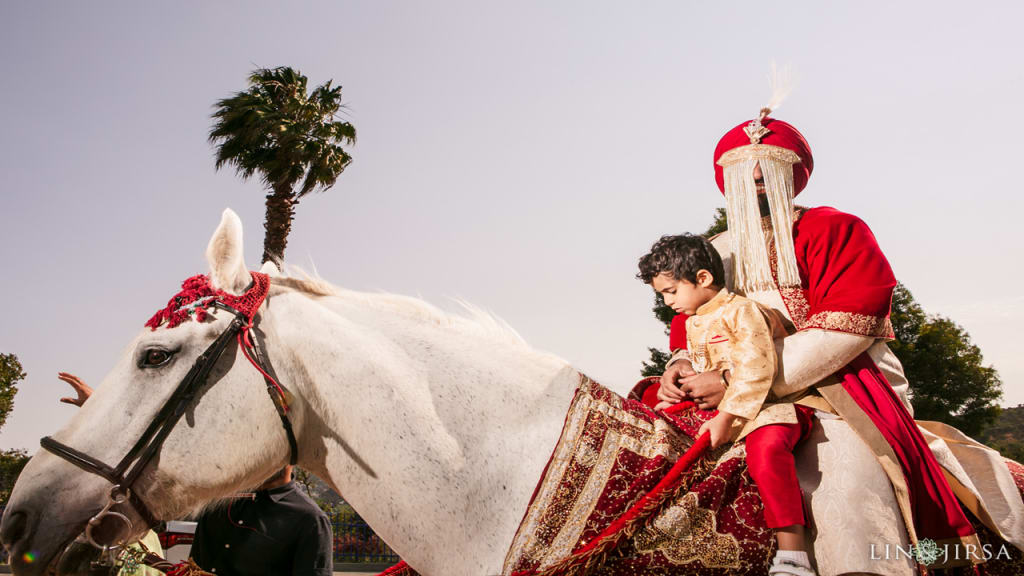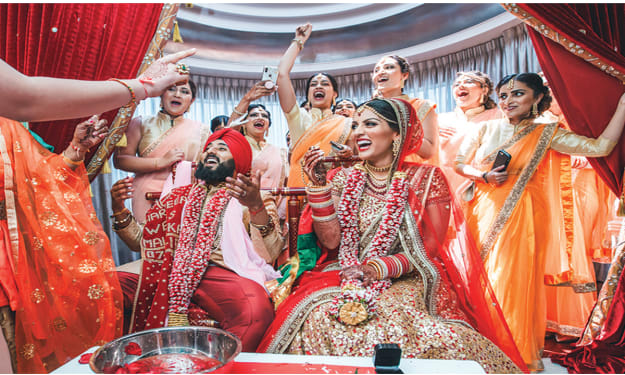Subahla, Subahla: The Protective Companion in Wedding Traditions
Rituals of Punjabi Society

Weddings are joyous occasions that bring families together and celebrate the union of two individuals. They are often accompanied by a myriad of rituals and traditions, each carrying its own cultural significance. One such tradition that holds a special place in many wedding ceremonies is the presence of the Subahla or Sabahala. Acting as the bridegroom's companion and protector, the Subahla plays an important role in safeguarding the groom from the influence of jinn and evil spirits, according to certain superstitions.
The term "Subahla" or "Sabahala" refers to the person who accompanies the bridegroom during the wedding procession. Usually, the Subahla is the younger brother or nephew of the groom, although in some cases, a close friend or cousin may assume this role. The Subahla is not just a mere bystander but actively participates in the wedding traditions, becoming an integral part of the groom's journey to the bride's house.
One of the most iconic aspects of the Subahla's role is their position on the horse. They are tied and seated behind the groom as they make their way to the wedding venue. This act symbolizes the Subahla's unwavering support and commitment to the groom, acting as a constant presence throughout the wedding festivities. The Subahla's proximity to the groom during the procession is believed to provide a protective shield, ensuring the groom's well-being and safeguarding him from any negative influences.
The belief in the Subahla's role as a protector stems from various cultural superstitions prevalent in different regions. In some communities, it is believed that jinn and evil spirits may try to harm the bridegroom during the wedding ceremonies. The Subahla, through their presence and close proximity to the groom, is thought to ward off these malevolent forces, creating a shield of protection around the groom and ensuring a smooth and auspicious wedding celebration.
The Subahla's role goes beyond superstitions and serves as a representation of familial support and unity. By appointing a close family member or relative as the Subahla, it signifies the bond between the groom and his family. The Subahla is entrusted with the responsibility of safeguarding the groom, not just from supernatural elements but also from any potential mishaps or obstacles that may arise during the wedding festivities.
Throughout the wedding procession, the Subahla remains attentive and vigilant, keeping a watchful eye on the groom's well-being. They provide emotional support, companionship, and assistance to the groom, ensuring that he feels comfortable and at ease during this significant milestone in his life. The Subahla's presence also serves as a symbol of continuity, as they represent the younger generation within the family, stepping up to fulfill their duties and responsibilities.
The significance of the Subahla's role extends to the larger community as well. Their presence during the wedding procession becomes a visible representation of the family's commitment to upholding cultural traditions and preserving the customs that have been passed down through generations. The Subahla's involvement in the wedding ceremonies serves as a reminder of the collective identity and shared values of the community, fostering a sense of pride and unity.
The Subahla's position as the groom's companion and protector is not limited to the wedding procession alone. Throughout the wedding festivities, they continue to play an active role in various rituals and traditions. They participate in games, dances, and other celebratory activities, adding an element of excitement and liveliness to the proceedings. Their presence creates a sense of camaraderie and togetherness, uniting both families in their shared joy and happiness.
In modern times, while some wedding customs and traditions have evolved, the significance of the Subahla's role remains intact. The belief in their protective presence may vary among individuals, but the symbolism of their companionship and support remains cherished and valued. The Subahla continues to represent the unbreakable bond between the groom and their loved ones, embodying the spirit of familial love, guidance, and protection.
As weddings continue to be cherished events that blend tradition with contemporary elements, the role of the Subahla persists as a reminder of cultural heritage and the importance of family. Their presence not only adds a touch of mystique and charm to the wedding procession but also serves as a symbol of love, unity, and protection. The Subahla's unwavering support and commitment to the groom create an atmosphere of positivity and assurance, ensuring that the wedding celebration is filled with joy, blessings, and a sense of security.
In conclusion, the Subahla or Sabahala holds a special place in wedding traditions, acting as the bridegroom's companion and protector. Rooted in superstitions and cultural beliefs, the Subahla's presence is believed to safeguard the groom from the influence of jinn and evil spirits. Beyond these beliefs, the Subahla symbolizes familial support, unity, and the preservation of cultural customs. Their role as a protector extends beyond supernatural forces and encompasses emotional support, guidance, and assistance throughout the wedding festivities. As weddings continue to evolve, the Subahla's significance remains an enduring testament to the bonds of love, family, and tradition.
About the Creator
Dr. Amjad Ali Bhatti
Dr. Amjad Ali Bhatti is a multifaceted individual who has made significant contributions in the fields of research, translation, literature, and social activism.






Comments
There are no comments for this story
Be the first to respond and start the conversation.